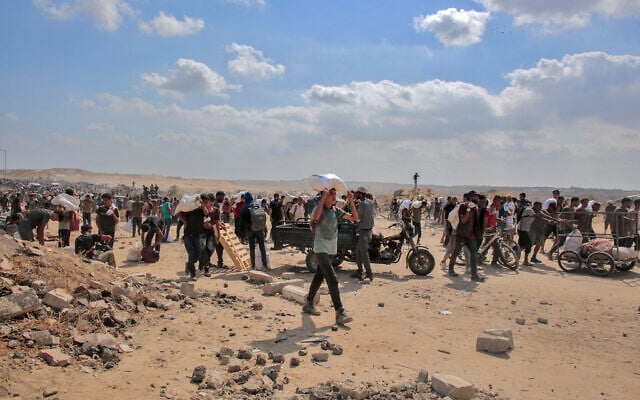Prime Minister Benjamin Netanyahu is expected to present his security cabinet with a dramatic proposal to extend Israel Defense Forces control over the entire Gaza Strip, including sectors where scores of Israeli hostages are believed to be held. The debate comes after months of faltering negotiations in Doha and rising pressure from both hawkish ministers demanding a knockout blow to Hamas and anguished families pleading for an all-inclusive prisoner release.
An Israeli official told The Jerusalem Post, underscoring that every operational scenario—ranging from targeted incursions to a sweeping ground takeover—will be tabled once the full cabinet finally convenes. Tuesday’s broader session was unexpectedly postponed; instead, a smaller security forum met with IDF Chief of Staff Lt. Gen. Eyal Zamir to weigh immediate battlefield realities.
Sources in the Prime Minister’s Office say Netanyahu has already “decided for the full occupation of the Gaza Strip.” Internal critics warn the move could imperil the estimated 105 civilians and soldiers still scattered in underground Hamas tunnels. Zamir reportedly opposes the plan; one senior aide, quoted by Ynet, suggested that he should “resign if he cannot execute government policy.” Despite the rift, Defense Minister Israel Katz told reporters during a tour of Gaza’s buffer zone that the IDF “will professionally implement” whatever the cabinet decides, reiterating that Hamas’s defeat and the hostages’ return remain the war’s twin goals.
Washington’s Role and a Shift in Strategy
U.S. President Donald Trump’s special envoy, real-estate executive Steve Witkoff, concluded a lightning visit to Israel on Sunday. Israeli and American officials claim Witkoff secured a “broad consensus” that any accord must free all captives, shelving incremental swaps tried in late 2024. He is to brief Trump on a “comprehensive framework” pairing total hostage release with Hamas disarmament—an approach applauded by Netanyahu’s far-right partners, who reject ceasefires that leave the Islamist faction intact.
Yet Hamas has dismissed Israel’s latest warnings as “repetitive, worthless, and without influence.” Over the weekend, the group published emaciated captives in a grim propaganda video, demanding hundreds of aid trucks and an end to Israeli air operations before it will even resume talks. Gaza’s Health Ministry claims 60,000 Palestinians have been killed or are missing since the war erupted after the October 7, 2023, massacre that left 1,200 Israelis dead.
Military Feasibility and Humanitarian Fears
The IDF says it already controls roughly 75 percent of Gaza but cautions that rooting out Hamas’s remaining brigades could “take years” and ignite a bloody urban revolt. Human-rights NGOs warn that any blanket occupation would deepen what the United Nations labels a catastrophic humanitarian crisis; more than 1.9 million civilians are internally displaced, and a U.S.–Israeli air-drop campaign has become the enclave’s aid lifeline.
Within Netanyahu’s fractious coalition, Strategic Affairs Minister Ron Dermer, Finance Minister Bezalel Smotrich, and National Security Minister Itamar Ben Gvir vocally endorse a complete takeover. Foreign Minister Gideon Sa’ar, Mossad chief David Barnea, and several centrist ministers argue that continued diplomacy still offers the best chance to save lives on both sides. Channel 12 reports the prime minister may test the waters by ordering limited raids while keeping negotiations alive.
What Happens Next
Cabinet secretary Yossi Fuchs said a rescheduled meeting could occur “within days.” Should ministers green-light the occupation blueprint, troops massed along Gaza’s remaining northern corridors are expected to push south toward Khan Younis and Rafah. Conversely, a decision to pause would signal a final attempt to salvage the Doha channel before winter rains bog down maneuver units.
Either way, Israelis and Palestinians alike brace for a critical moment—one that could determine not only the fate of the captives but the long-term balance of power on Israel’s southern frontier.
Photo: Times of Israel
